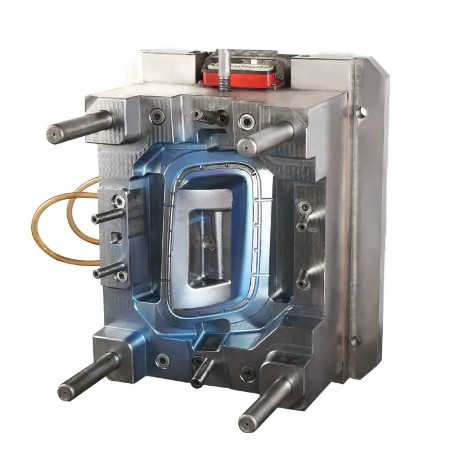Precision molds for automotive parts, also known as automotive injection molds, are specialized tools used in the manufacturing process of automotive components. The characteristics of these molds include:
-
High Precision and Accuracy: Precision molds for automotive parts are designed to produce components with extremely tight tolerances and high precision. They ensure that the final products meet the strict quality standards and specifications required in the automotive industry.
-
Material Durability: These molds are typically made from high-quality and durable materials such as hardened steel or aluminum alloys. The chosen material should be able to withstand the high pressures, temperatures, and wear associated with the injection molding process.
-
Complex and Customized Designs: Automotive components often have complex shapes and intricate designs. Precision molds for automotive parts are engineered to replicate these designs accurately, incorporating multiple cavities, sliders, lifters, or other features required for the specific part.

-
Cooling System: To optimize the production cycle and ensure proper cooling of the injected material, precision molds for automotive parts often incorporate cooling channels. These channels allow for efficient heat dissipation and help maintain consistent part quality and cycle times.
-
Ejection System: The molds are equipped with an ejection system to release the molded parts from the mold cavities smoothly and without damage. This system may include ejector pins, sleeves, or other mechanisms to facilitate easy part removal.
-
Runner System: Automotive injection molds typically incorporate a runner system, which guides the molten plastic material from the injection molding machine into the mold cavities. The runner system helps ensure even distribution of the material and aids in proper filling of the mold.
-
Venting: Venting is an essential feature in precision molds for automotive parts to allow the escape of air or gases during the injection process. Proper venting helps prevent surface defects, such as trapped air or burn marks, on the molded parts.
-
Surface Finish and Texture: The molds can be designed to provide specific surface finishes or textures on the molded parts, such as matte, glossy, textured, or grained finishes. These finishes contribute to the aesthetic appeal and functionality of automotive components.
-
Longevity and Maintenance: Precision molds for automotive parts are engineered to withstand high-volume production over extended periods. They are built to be durable and require regular maintenance, including cleaning, lubrication, and periodic inspections, to ensure consistent performance.

 English
English Español
Español русский
русский















